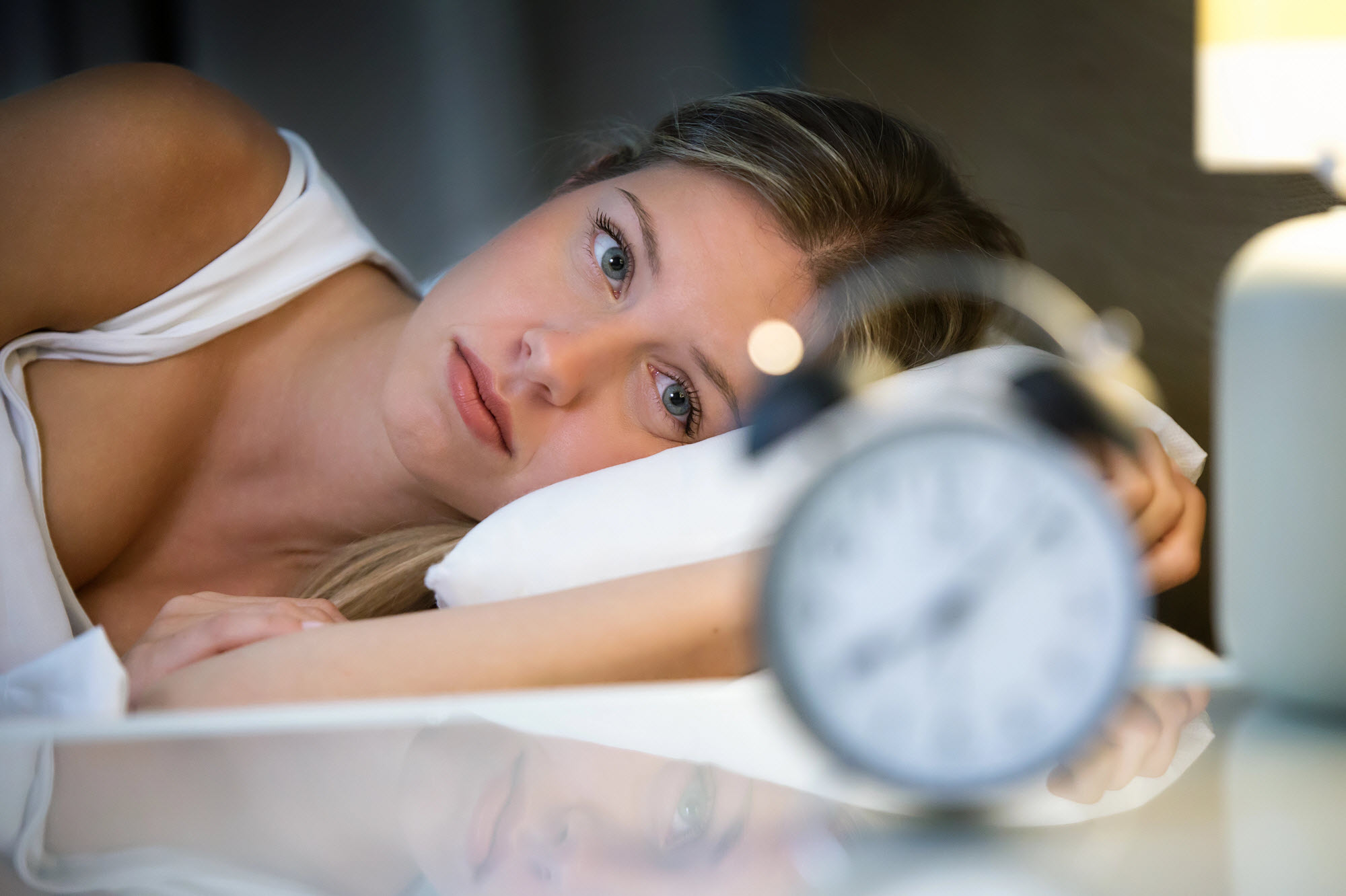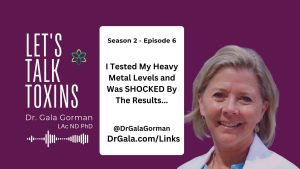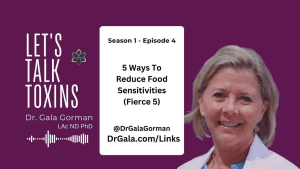You’re not alone if you’re finding sleep elusive as you’ve moved into midlife … late 30’s or beyond. Insomnia can creep into your life as you age, but remember, it doesn’t have to dominate your nights or steal your energy.
Understanding the root causes, recognizing the signs, and knowing the right treatment strategies can help you reclaim peaceful slumber. The journey to better sleep isn’t always easy, but there are things you can do to improve your sleep … naturally.
Dr. Gala’s Quick Take
Yes, insomnia in midlife can be caused by various factors including stress, hormonal changes, and lifestyle habits. Understanding these factors is crucial for managing sleep disturbance during this stage of life.
What You Need to Know About Insomnia As You Age

As you navigate through midlife and beyond, it’s crucial to realize that insomnia isn’t just a minor nuisance, but a serious issue that can greatly impact your health and well-being. Insomnia during these years can disrupt your sleep patterns, leading to unwanted health effects.
Your strength lies in being informed and proactive. Be aware of the signs of insomnia: difficulty falling asleep, waking up often during the night, and rising too early. Understand that these sleep disturbances aren’t just bothersome, they can be genuinely detrimental. Insomnia can cause daytime tiredness, reduced mental sharpness, and can even worsen existing health problems.
There is some good news. You have the power to tackle insomnia. You can take measures to improve your sleep, boosting your health and life quality.
Insomnia Causes
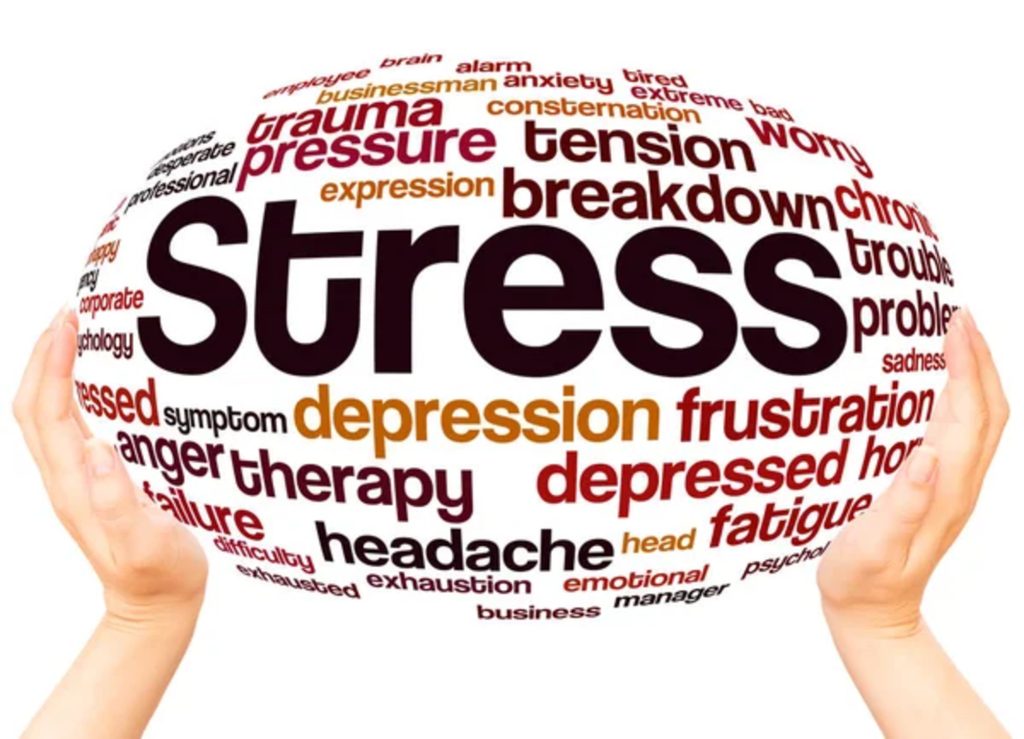
Understanding the root causes of insomnia can help you make the right adjustments to improve your sleep and overall health. You’re not alone in your struggle with sleep problems … especially in midlife.
You may be at risk for insomnia due to chronic stress or anxiety. Your mind races, keeping you awake with worries or plans for the next day. Hormonal changes, another common culprit, can disrupt your sleep patterns, leaving you tossing and turning.
An underlying health condition could be the hidden cause of your insomnia. Conditions like heart disease, diabetes, or respiratory issues often have insomnia as a side effect. Investigating these potential health conditions can help you reclaim your sleep.
Insomnia Types
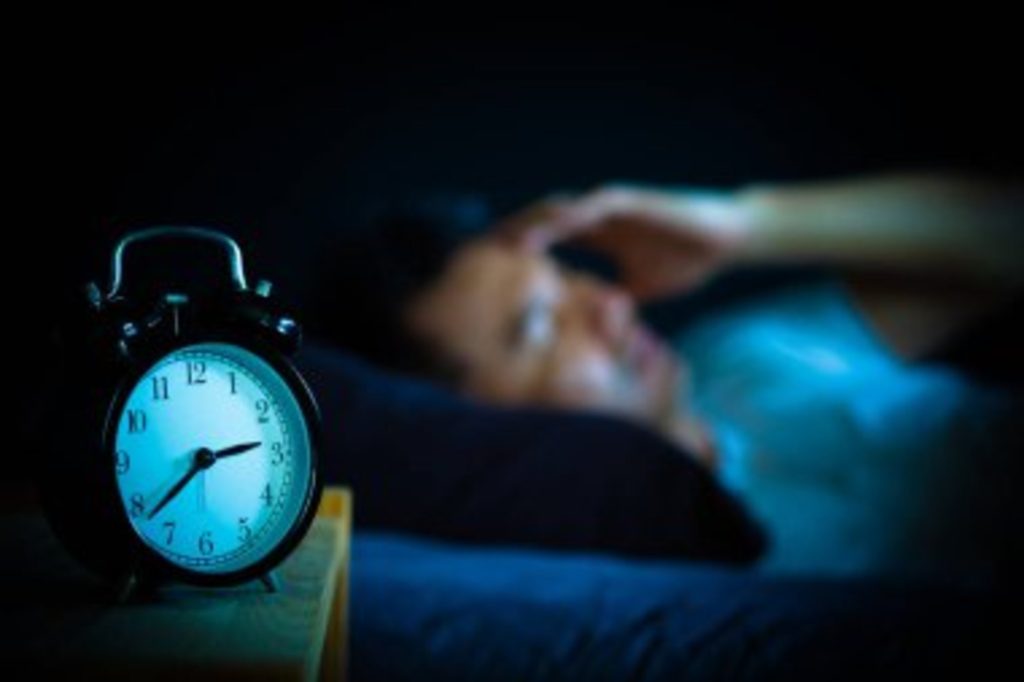
Understanding the different types of insomnia can help you take charge of your sleep health.
Whether it’s primary or secondary, chronic or acute, each type of insomnia has its own unique triggers and potential health impacts.
Primary Vs Secondary Insomnia
Insomnia is often divided into two main categories: primary and secondary, each with its distinct causes and resulting impact on your sleep.
Primary insomnia refers to situations where your consistent sleep issues aren’t connected to any other medical conditions. Your sleep difficulties might arise from life pressures or poor sleep practices.
On the flip side, secondary insomnia occurs when your sleep disturbances are a consequence of other factors. Conditions like asthma, depression, arthritis, or heartburn can affect your sleep quality and result in secondary insomnia. Some medications might also lead to this type of sleep issue.
You may be asking yourself: why is this important? Understanding the type of insomnia you have helps you develop an effective strategy to manage your sleep effectively. It enables you to address the underlying cause directly, rather than merely tackling the symptoms.
Chronic Vs Acute Insomnia
Exploring insomnia further, you’ll find it’s not a one-size-fits-all condition, but rather a complex issue that can be chronic or acute, each with its unique challenges and strategies for management.
Chronic insomnia, a recurring sleep disorder, is a relentless night-time adversary you might grapple with. If you experience sleep disturbance at least three nights a week for over three months, you have chronic insomnia. It’s often linked to midlife changes or underlying health conditions. This long-term sleep interruption demands persistence and a comprehensive approach to overcome.
On the other hand, acute insomnia is usually brief, often stress-related, sleep disruption. Even though it’s short-lived, don’t underestimate its power to disrupt your life.
Understanding the type of insomnia you’re battling is your first step to reclaiming control over your sleep. You can take active steps to manage your insomnia, whether it’s chronic or acute. Explore possible causes, and develop a sleep routine tailored to your unique situation. Regain your sleep, restore your energy, and reshape your midlife experience.
Insomnia’s Impact on Health
Insomnia’s impact on your health is often minimized, yet it’s serious and negatively affects your daily life and overall well-being. When sleep disturbances become your nightly companion, they can lead to chronic health issues, affect your mental health, and even alter the production of the critical hormone melatonin.
Melatonin is crucial for regulating sleep, and its imbalance may increase your risk of depression. Don’t let this information overwhelm you.
With effective strategies and treatments tailored to your unique needs, you can restore sound sleep. Remember, acknowledging the challenge is the first step towards conquering it.
Millions of women are dealing with insomnia, and many have successfully overcome it. Yes, insomnia is a tough opponent, but you are arming yourself with the knowledge you need to rise to the challenge.
Insomnia Treatment

There are various treatment options available to help you regain control over your sleep. From medications to natural remedies, there’s a solution out there that will work for you.
Learning more about behavioral therapy techniques, lifestyle modifications, and the importance of good sleep hygiene practices will help you manage insomnia.
Understanding Insomnia Medications
Numerous insomnia medications are available. Understanding the options will ensure that you can make informed decisions about your treatment and restore your sleep. Sleep medicine has progressed, with a variety of sleep aids designed to combat insomnia.
It’s essential to understand that all sleep aids have potential side effects. Side effects can range from mild drowsiness to more serious issues like dependency. By understanding these risks, you’re in control.
There is ongoing research that produces the latest sleep medicine developments. With a better understanding of insomnia treatment options, you’re not just reacting to sleepless nights … you’re proactively managing your sleep health.
Behavioral Therapy Techniques
Embrace the power of behavioral therapy techniques as a fresh approach to conquer your insomnia and regain control over your sleep. If you’re struggling to fall asleep, stay asleep, or both, it’s not surprising. It’s fairly common for women in midlife.
Behavioral therapy techniques offer a unique, non-pharmaceutical approach to dealing with insomnia. Unlike medications, they tackle the root causes of your sleep troubles, not just the symptoms. Cognitive-behavioral therapy for insomnia (CBT-I), for example, helps you identify and change the thoughts and behaviors causing your sleep problems.
These techniques are typically personalized to your specific sleep patterns and challenges, making them highly effective treatment options. They empower you to take charge of your sleep, giving you the tools and strategies to combat insomnia head-on. It’s not an overnight miracle, but with consistency, patience, and determination, you can regain your restful nights.
Lifestyle Modifications Impact
In addition to behavioral therapy techniques, making appropriate lifestyle changes can positively impact your experience with insomnia in midlife.
Start by establishing a regular sleep schedule. Going to bed and waking up at the same time every day, even on weekends, can help regulate your body’s internal clock. Limiting naps, especially in the afternoon, can also promote a better night’s sleep.
Exercising regularly is another powerful weapon against insomnia. Not only does it improve your physical health, but it can also reduce anxiety and promote deeper, more restful sleep.
Your diet also plays a role. Avoid large meals, caffeine, and alcohol close to bedtime. These can disrupt your sleep cycle and make insomnia worse.
Natural Remedies Exploration
Have you considered the power of natural remedies to deal with insomnia? These gentle yet effective solutions could be a game-changer for your sleep issues. Don’t let midlife insomnia steal your night’s peace.
Personalized treatment options are available, tailored to meet your unique needs and circumstances. They can help address your insomnia, even when it’s complicated by underlying health conditions. Herbal supplements like valerian root, chamomile, and lavender have been used for centuries to promote sleep. Melatonin, a hormone your body naturally produces, is another safe, non-addictive option to consider.
But remember, it’s not just about taking a supplement … natural or otherwise. And, I never recommend supplementing long-term.
That approach doesn’t solve the underlying problem and will result in escalating companion symptoms. Adopting a comprehensive, holistic approach to your sleep health is more likely to produce a sustainable solution.
Physical activity, a balanced diet, and stress management all play significant roles. In your journey for better sleep, you’re not alone. Reach out to healthcare professionals who can assist you in exploring these natural remedies.
You are powerful. Harness that power, and reclaim your rest. Remember, sleep isn’t a luxury. It’s a necessity … a fundamental pillar of your health and well-being.
Sleep Hygiene Practices
While exploring natural remedies is a beneficial step, don’t overlook the importance of sleep hygiene practices in managing your midlife insomnia. Beyond counting sheep, you can control your environment and habits to create the optimal conditions for restful sleep.
Firstly, establish a consistent sleep schedule. Going to bed and waking up at the same time every day helps your body’s internal clock to anticipate sleep at certain times.
Secondly, transform your bedroom into a sanctuary conducive to sleep. A cool, dark, and quiet room can foster deep sleep. Consider using eye shades or earplugs if necessary.
Next, be mindful of what you eat and drink. Avoid large meals, caffeine, and alcohol close to bedtime.
Lastly, disconnect from screens at least an hour before bedtime. The light emitted by phones, tablets, computers, and TVs can disrupt your sleep.
Toxins Interfering With Sleep

If you feel like you’ve tried everything, toxins may be stealing your good night’s sleep. They’re often overlooked factors that can disrupt your sleep patterns. When tackling insomnia, especially in midlife, you need to be aware of these silent sleep disruptors.
Toxins can creep into your life in various ways, from the food you eat to the air you breathe. They can disturb your sleep-wake cycle, leading to issues like insomnia. But these invasive toxins can be managed.
Start by taking a closer look at your diet. Processed foods are often filled with artificial additives that can interfere with your sleep. Choose fresh, organic products instead. Equipping your home with air purifiers can help you breathe cleaner air, reducing the toxin load on your body.
Remember, small changes can have a big impact. Regaining control over your sleep will also improve your overall health.
You can reclaim your peaceful nights of sleep … one toxin-free step at a time. And in doing so, you’ll overcome insomnia in your midlife.
Key Takeaways
- Insomnia during midlife can be linked to chronic stress, underlying health conditions, or hormonal changes.
- Types of insomnia include primary, secondary, chronic, and acute, each requiring different management strategies.
- Cognitive-behavioral Therapy for Insomnia (CBT-I) and lifestyle modifications are effective treatment approaches.
- Good sleep hygiene practices, including a regular sleep schedule and a peaceful environment, can help manage insomnia.
- Toxins from processed foods and the environment can disrupt sleep quality. Choosing organic foods and using air purifiers can help.
Conclusion
If you struggle with midlife insomnia, remember, knowing its causes, types, and treatments is a crucial step towards reclaiming your nights.
With personalized sleep routines, and natural remedies, you can overcome this challenge.
Never underestimate the power of a good night’s sleep. Your health, vitality, and mental sharpness are worth fighting for.
You’ve got this – take control of your sleep health and transform your life!
“If you came into my office, I’d ask you a lot of questions that would help us connect the dots … so that together we can deal with your toxic stress.
Every situation is unique and you need a plan that works for you. Not a one-size-fits-all solution.
If you’re thinking you can’t come into my office, don’t worry. I’ve created a program with all of my initial recommendations to help you unravel the mystery. You can use it at home and at your convenience.
So if you’re thinking that managing chronic stress just isn’t possible … or even the answer … for you, I want to show you what you may be missing.
And how you can identify the toxic stressors that are creating your symptoms with my Human Energy System Reboot. You can get started HERE.” – Dr. Gala

